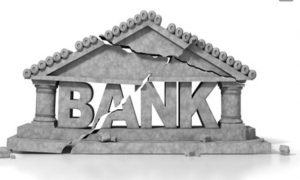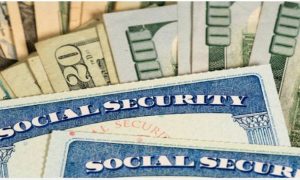MarketWatch has highlighted these products and services because we think readers will find them useful. We may earn a commission if you buy products through our links, but our recommendations are independent of any compensation that we may receive.
For those with excellent credit, there’s good news on the personal loan front: rates for the week of October 4th have fallen slightly, from 14.20% for a three-year loan and 14.97% for a five-year loan in the week prior, to 13.68% and 14.22%, respectively, according to data released this week from Bankrate. And you might get a far lower rate than average, as a number of issuers offering rates starting at around 5%, for qualified borrowers. But for those with just fair credit, rates actually ticked up slightly, hitting 27% for a three-year loan and 20.61% for a five-year loan, compared to 26.69% and 26.26%, respectively. (You can view all the latest rates, broken out by credit score, in the chart below.)
| 3-year, fixed rate | 5-year, fixed rate | |
| Excellent (720-850) | 13.68% | 14.22% |
| Good (690-719) | 20.42% | 20.50% |
| Fair (630-689) | 27% | 20.61% |
| Poor (300-629) | 29.85% | 29.69% |
What is a personal loan?
A personal loan is a loan issued by an online lender, bank, or credit union, usually in an amount ranging from about $1,000 to $100,000. You often repay personal loans at regular intervals, such as each month, over anywhere from one to seven years. You can often get these loans quickly, sometimes in as little as a day or two, and they sometimes carry lower interest rates than credit cards, but typically carry higher interest rates than things like home equity loans or home equity lines of credit.
Who could benefit from a personal loan?
If you need a loan quickly, this might be a good option for you, assuming, of course, you can repay it, and you get a good rate. “Obtaining a personal loan often allows you to accomplish something sooner by giving you funds up front rather than waiting to save for it,” says Lauren Anastasio, a certified financial planner at SoFi. And Ted Rossman, senior industry analyst at CreditCards.com, notes that in addition to funding quickly, these loans are often easier to obtain than other types of funding like business loans, especially if you’re just starting out and don’t have much, if any, business revenue.
“Personal loans can be very helpful tools depending on what you use them for,” Anastasio adds. Indeed, you could use a personal loan to consolidate debt and potentially save money if you got a lower interest rate on the personal loan than you did on your debt. Another benefit? When transferring credit card balances to a personal loan, moving the revolving debt to an installment loan can significantly help one’s credit, explains Matt Schulz, chief credit analyst at LendingTree. Your credit mix, or the variety of types of loans on your credit report is a significant factor in FICO credit scoring formulas,” he explains.
Personal loans also work well for home improvement projects that you want to start quickly, like a roof repair, because you can usually go from application to funding in a week or less, experts say. They may also be an alternative to consider to small business loans, and if you have good credit, they may come with lower interest rates than business and personal credit cards.
But experts say you should not use personal loans to cover discretionary purchases like vacations and retail splurges. “Personal loans are a big commitment for short-term, discretionary purchases. Everyone is itching to get out and travel these days, but even the smallest personal loans often have repayment schedules of a year or more,” says Annie Millerbernd, personal loans expert at NerdWallet.
What are the pros and cons of personal loans?
In addition to funding quickly, these loans have other pluses as well. “Not only are you avoiding putting your home or car on the line, you’re also avoiding giving up any equity in your business,” says Rossman; that’s because most of these loans are unsecured, meaning the borrower doesn’t have to set forth any collateral to guarantee the loan.
However, their interest rates can be higher than other types of loans like home equity loans and HELOCs. And you have to watch out for fees. Millerbernd cautions borrowers to watch out for origination fees. “Lenders that charge an origination fee often scrape a percentage of the amount you’re borrowing off the loan before it hits your account, which is something to consider if you’re trying to borrow a specific dollar amount, because with an origination fee, you could find yourself a few hundred to a few thousand dollars short,” says Millerbernd. And she adds: “Personal loans also have the potential to accelerate spending, by giving you the ability to pay for a large expense without having to save for it.”
What are personal loan lenders looking for in a borrower?
Rossman says every lender is different, but in general, they don’t place too much importance on the reason for your personal loan. “Typically, they’re much more concerned with your credit score, income, debt-to-income ratio and other factors that influence the likelihood you’ll pay them back,” says Rossman. Debt-to-income ratio can be calculated when adding all your monthly debt payments together and dividing them by your gross monthly income; many lenders look for a DTI of 35-40% or less, though many will lend to individuals with a higher ratio.
How to get a personal loan if you have a lower credit score
In general, the lower your credit score, the more you’ll pay in interest for a personal loan. And some borrowers may not qualify at all. That said, you can do some things that might get you from rejection to acceptance with a lender. “ If you’re close to the threshold, making a large payment against a revolving balance or utilizing something like Experian Boost could put your over the hump relatively quickly,” says McBride. Furthermore, “if you’re making all of your payments on debts and bills on time and paying down any revolving debts, time will heal the wounds,” he adds. Just remember that you must repay a personal loan in-full and on-time to ensure that it doesn’t impact your credit score down the road.







































